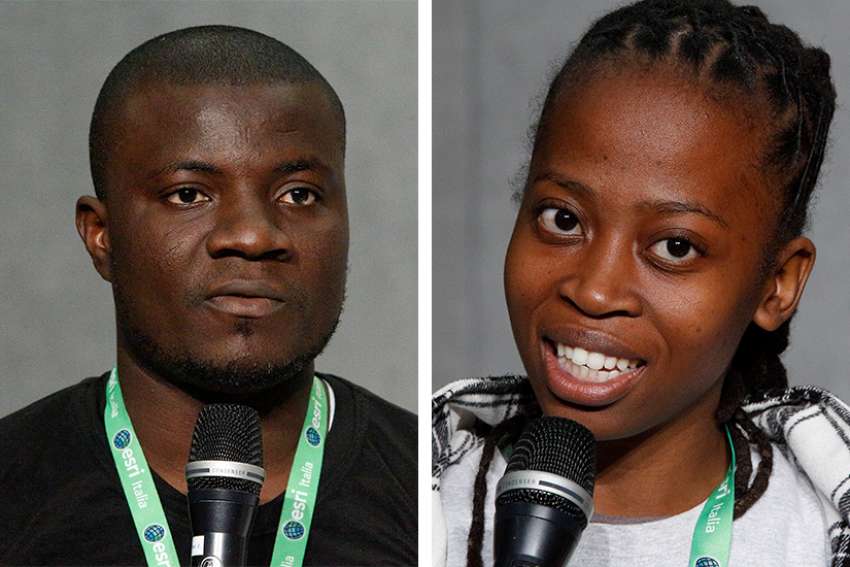Vincent Paul Nneji of Nigeria and Tinyiko Joan Ndaba from South Africa were among the 305 young adults participating in a weeklong meeting designed to allow young people –involved Catholics and others – to provide input for Pope Francis and the world's bishops, who will meet in a synod in October to discuss "young people, faith and vocational discernment."
Nneji told Catholic News Service March 20 that the preparatory meeting offers a chance for young Catholics in his country who are considered "a minority voice" to speak out on important issues.
"When the Pope sent a letter on this meeting, we said, 'Finally, the church in Rome has decided to give us a platform; they decided to give us a listening ear,'" Nneji said.
While struggles with "social injustice, bad leadership, poverty and financial insecurity" are just some of the difficulties facing young Nigerian men and women today, Nneji said, "the major challenge is trying to be a Catholic youth and a light for other people, even in the midst of the conflicts we face in Nigeria."
African youths today, Nneji added, have "so many things in our hearts we want to express and want to say," yet they often feel disregarded. Too many, he said, then resort to violence in the hopes of provoking change.
"Sometimes when you're not allowed to say these things, it's like a volcano and when it gets so big," it blows up, he said.
Two young Africans speak to Catholic News Service about the challenges their countries face and about their hopes for October's Synod of Bishops on young people.
(Catholic News Service)
Nneji told CNS he hopes that, through the pre-synod meeting, the whole world "may see a reason for allowing youths to be heard, for allowing (young people) to be part of decision-making, even in society."
"If we were allowed to express ourselves, we would have less violence, we would have more peace in our society and in our world," he said.
"And of course, in various parts of the world where youths are being exploited and used for various forms of violence, those things will reduce, those things will stop because this time around they will say, 'We have a platform where we can talk, so we don't need to carry guns, we don't need to carry machetes. We just have to go and dialogue,'" Nneji said.
Ndaba told CNS, "I hope that young people can be given a chance to change society because I think we have so much potential."
"But we can't do it on our own," she said. "We need support from the people who have been there before and who can give us direction where to go."
Ndaba was chosen to attend the meeting by Talitha Kum, the anti-human trafficking organization where she works. The organization is an international network of consecrated men and women in 75 countries promoting initiatives against human trafficking.
While the Catholic Church in South Africa is doing its best to prevent future cases of human trafficking, she said, the church also must warn young people of the harm inflicted by those who exploit women, especially when "the demand is coming from Catholics."
During the opening session of the pre-synod meeting March 19, Blessing Okodion, a young Nigerian rescued from forced prostitution in Italy, asked Pope Francis what could be done to increase awareness of human trafficking.
Pope Francis noted that since the vast majority of Italians are Catholic, the majority of men who use prostitutes in Italy also must be.
"One who goes to a prostitute is a criminal, a criminal," Pope Francis told the young people. "This is not making love. This is torturing a woman. Let's not confuse the terms. This is criminal."
As one of many men and women working a to prevent human trafficking in Africa, Ndaba told CNS she was happy to hear the Pope speaking frankly about a "hidden crime" that is "not talked about so much."
Human trafficking is an important topic for a youth gathering, she said, "because most victims of human trafficking are young people who are trying to find better jobs, a better life so they migrate and traffickers take advantage of that, most especially with young people.


